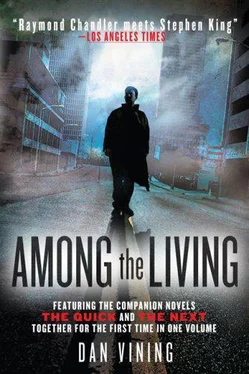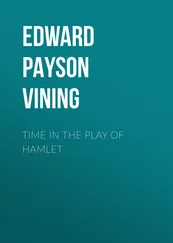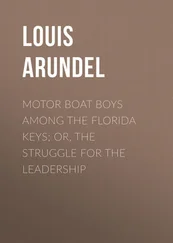There was an edge of blue light around him, at least to Jimmy’s eyes.
“ I know you, Brother, ” he looked at Jimmy and mouthed.
Suddenly the passenger door opened and a girl plopped into the seat beside him, a very young girl in a very short skirt. She yanked the door closed, as if that settled something, closed the deal.
“Hi, what’s your name?” she said, like she was thirteen.
Jimmy looked over at the turquoise nightclub. The man in the peacoat and watch cap raised his bottle of water in salute.
The light turned green.
“You’d better get out,” Jimmy said to the girl.
“Let’s just ride around,” she said. “Just until it stops raining.”
“It’s not going to rain for four months,” Jimmy said.
“It rained earlier.”
“Bullshit.”
“You’re not very friendly,” she said with a pout someone must have told her was sexy. The car behind the Porsche flicked its lights. Jimmy pulled out.
“I’ll take you to the All American Burger,” he said.
“Cool.” She tugged at the hem of the skirt under her and changed the station on the radio.
“I hate this song,” she said.
“I mean, I’ll drop you off there,” Jimmy said.
She ignored him, fumbled in her bag, found her cigarettes.
“Don’t,” he said. “Please.”
She pouted another half second then closed her bag and turned in the seat to face him, to let him see her legs, if he wanted to look.
Jimmy looked up at the crossroads behind him in the mirror. The Sailor had turned away to walk back up Sunset. On the prowl.
“So. What do you do, Mr. No Names Please?” she said.
“Just drive around.”
“Looking for trouble.”
“No, I know where that is,” Jimmy said.
She bit her lip and said, “I bet.”
“You’ve been watching too much TV,” Jimmy said.
He drove two more blocks, looking ahead. It was after midnight now and the night was coming into its own, shaking itself awake like a dog, the whores and their men, the hyper teens, pierced runaways on bus benches, their legs jumping, laughing and hitting each other, all of it looking like fun, for about the first ten seconds. The All American Burger was ahead, red, white, and blue and way too bright.
“This car is cool but it’s like older than you are, right?”
“It’s a ’64.”
“And that’s like older than you are, right?”
He laughed. “Yeah.”
“I have a ’99 Corvette back home in Ohio up on blocks with only a hundred miles on it. I was a Gerber baby.” She said it all in one breath.
“A what? ”
“A Corvette.”
“No, I mean — ”
“A Gerber baby. In ads. In Good Housekeeping. ”
There was something sweet about her lies, something that made him want to try to pretend he was her brother, take her along with him for a few hours and try to beat back the night.
But before they made it to the All American Burger they came up on a tricked-out pickup on the other side of the wide street. Another girl like this girl leaned in the window, talking to three teenagers wedged into the front seat shoulder to shoulder, El Camino High linebackers.
“Stop!” she said. “I know those guys.”
Jimmy pulled to the curb.
She jumped out.
She threw the door closed and leaned all the way in. “You’re sweet,” she said in that way that doesn’t mean anything.
Then she kissed him on the cheek.
She pulled back, spooked. She stepped away from the car. She stood on the sidewalk. She touched her lips.
Jimmy drove away, up Sunset.
When he looked up in the mirror, she still stood on the side of the street where he left her, watching him go, holding herself as if from a sudden chill.
* * *
Angel’s house was halfway down an impossibly steep hill in Silver Lake in a neighborhood of Craftsman bungalows, some restored and almost too neat, the rest of them peeling under all the sun the hill took. Jimmy parked the Porsche, wheels canted to the curb. You could hear the music from here. The moon was still up. A couple made out against the fender of a cherry Camaro. They ignored him.
The partiers spilled out of the house onto the terraced backyard. Angel’s place was never closed, his friends and wards mostly Latinos with a few Cal Arts types. Three people danced to ska under a string of chili pepper lights hung in a grapefruit tree, its trunk painted white. Somebody on the steps recognized Jimmy as he came down around the side of the house and threw him a beer.
Angel Figueroa huddled at a picnic table with a skinny kid. Angel was in his forties, muscular, “cut,” clear-eyed, un-tattooed. He wore starched wide-leg jeans, stiff as cardboard, and a white T-shirt, a look they called California Penal. He spoke Spanish to the kid, fervent. The kid looked at the ground, nodding. In Angel’s lap was an open Bible with a homemade leather cover.
Angel looked up.
“Ask Jimmy,” Angel said. “Jimmy knows all about Jesus but he won’t accept the grace either.”
Jimmy nodded hello to the kid, who looked embarrassed.
“I’ve been working on Jimmy Miles for years,” Angel said. “Ask him. I don’t go away. Jesus don’t go away, I don’t go away.”
The kid’s name was Luis.
“This is Luis.”
Jimmy nodded at the kid again.
“Gimme some money,” Angel said to Jimmy.
Jimmy dug in his pocket and took out a folded sheaf of bills. He handed it all to Angel.
Angel peeled off two fives and gave them to the kid. “Go ask that chica over there why she’s been looking over here at you,” Angel said. There was a pretty girl on the steps, drinking a Coke, as young as the hooker on Sunset. “Take her up to Tommy’s. We all run out of food. Take my truck.”
Luis went away to talk to the girl.
“I’m trying to get him in an Art Magnet,” Angel said to Jimmy.
Angel shook Jimmy’s hand and pulled him down onto the bench beside him.
“Tell me something good.”
“I made the run to Tecate the other night,” Jimmy said.
“You shoulda called.”
“Stopped at that little fish fry place.”
“I was probably busy.”
“Next time,” Jimmy said, to hit the ball back over the net.
“Yeah, next time.”
Angel stood and put his arm around him. “I got something sweet to show you.”
In the garage, a half dozen young men dressed like Angel and with beers in their hands gazed reverently upon a chopped and lowered ’56 Mercury, a work in progress ground down to shiny steel.
Angel came in singing, “ Baby loves a Mercury, crazy ’bout a Mercury …” He snatched a handkerchief out of the back pocket of one of the men, mimicked wiping off the hood. The men laughed. Maybe it was a joke about working in a car wash. Jimmy liked the people Angel drew to him, kids struggling to stay in school and men in their twenties and thirties and even forties struggling to stay in or out of any number of things. They looked like killers, but they weren’t.
“What’s the mill?” Jimmy said and ran a hand along the smooth fender.
“You don’t want to know,” Angel said.
Jimmy reached into the downturned mouth of the chrome grill and found the latch and opened the hood. There was no chrome on the engine. It was functionality writ large, wedged in its space like an iron fist.
The men stepped closer. Nobody said anything.
“A 427,” Angel said. “Holman-Moody built it for Freddie Lorenzen in ’66. Come by in the daytime, I’ll light it up for you. It doesn’t have very good manners.”
One of the kids repeated the last in Spanish for the man next to him.
Jimmy lowered the hood, pushed gently until the latch clicked.
Читать дальше












